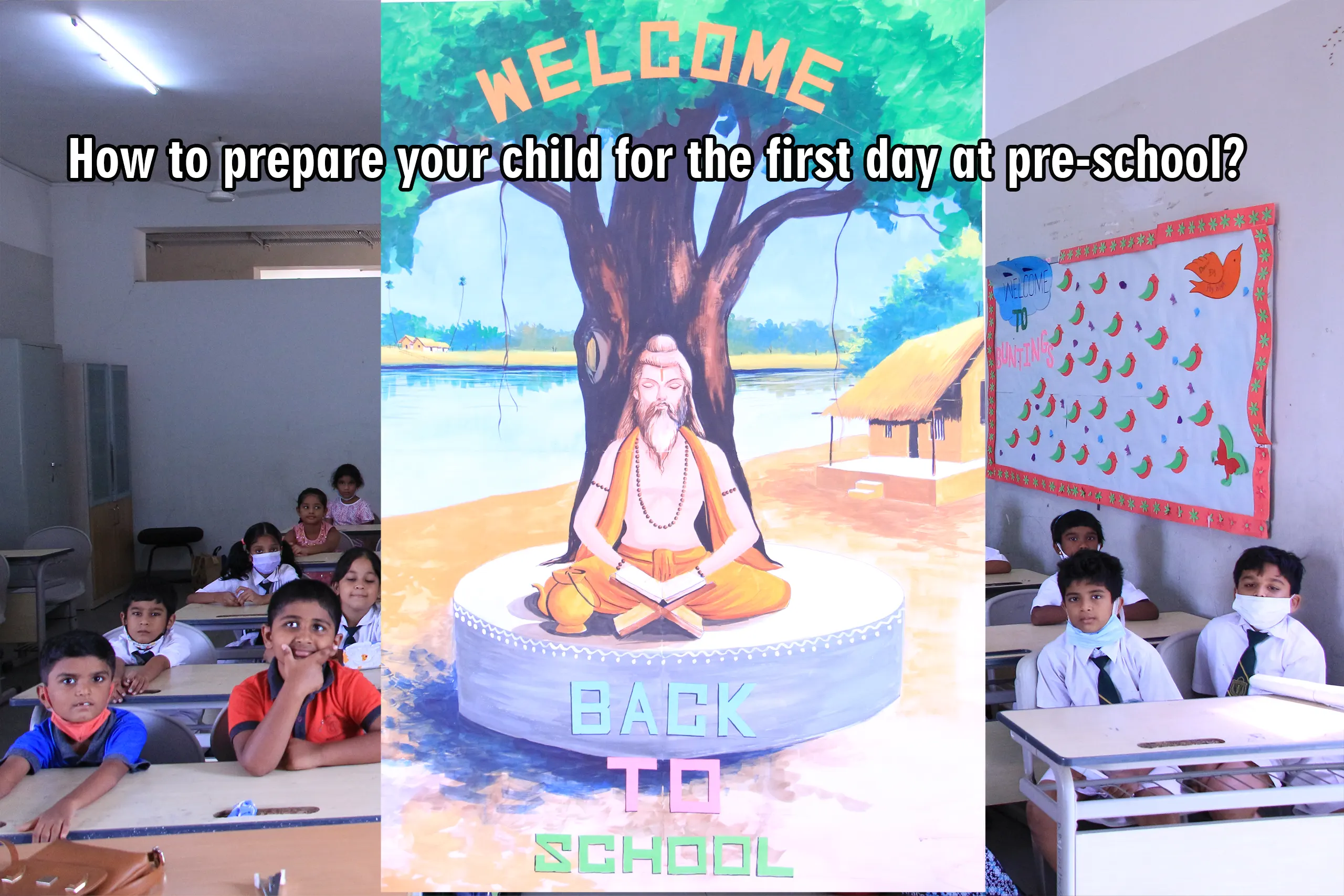Starting pre-school is a big milestone for children and can be both exciting and nerve-wracking for everyone involved. It’s natural for children to feel some anxiety about starting a new environment and being away from their parents. To avoid or at least minimise this separation anxiety, there are steps that parents can take. It is important to be patient and understanding with your child as they adjust to this new experience. Remember to praise and encourage your child for their efforts and to let them know that you are proud of them.
9 handy tips to help prepare your child for the first day at preschool:
1. Talk to your child about preschool in advance:
It’s important to start talking to your child about preschool a few weeks before they start. You can show them pictures of the school, talk about the activities they will do, and introduce them to their teachers. You can also talk about the routine of the school day, such as when they will eat lunch and take a nap.
2. Practice keeping them away from you:
If your child is not used to being away from you, it can be helpful to gradually increase the amount of time they spend away from you. This can ease them into the idea of being apart and will make the transition to preschool easier. You could start by leaving them with a trusted caregiver for short periods of time such as an hour or two, and gradually increase the amount of time as they get more comfortable. This will help them adapt more easily to the new environment and people when they start preschool.
3. Help your child socialise:
Make it a point to have them meet different people regularly so they’re used to the idea of new faces. By doing this well in advance, your child will be more comfortable with the notion of meeting their teachers, fellow students, and a whole new environment.
- Play with your child and encourage them to share toys and take turns.
- Encourage your child to make friends and to be kind to others.
- Practice greeting others and introducing themselves to new people
4. Encourage your child to express their feelings:
It’s important to allow your child to express their feelings about starting pre-school. If they are feeling anxious or upset, it’s necessary to acknowledge their feelings and validate them. You can explain to them that it’s normal to feel nervous about starting something new and that you will be there to support them.
5. Practise new routines:
Starting preschool often involves new routines, such as getting up earlier and getting dressed independently. You can practise these routines with your child a few weeks prior to their school’s scheduled date. You could also practise packing their lunch and backpack, and getting to and from the school, and have them involved in the process. Have them choose their favorite foods by planning meals so they have something familiar to look forward to.
Prepare for drop-off and pick-up:
- Practise the drop-off and pick-up routine with your child so they know what to expect.
- Choose a specific place to meet your child at pick-up time and make sure they know where to go.
6. Meet the teachers:
It can be comforting for your child to meet their teachers before the first day of school. You can arrange a visit to the school and introduce the teachers to your child. This will help your child feel secure and at ease with a new set of adults, before the first day at school.
7. Be positive:
It’s important to be positive and encouraging when talking to your child about starting preschool. Prepare them mentally for the shift in their life, and routine. You can tell them how much fun they will have, how many new friends they will make, and how proud you are of them for starting something new.
8. Say goodbye:
On the first day of school, it’s important to say goodbye to your child and reassure them that you will be back to pick them up. It’s also helpful to have a special goodbye routine like waving your hand at them, to help your child feel more comfortable. Anticipate crying and feeling overwhelmed yourself. Provide hugs and validation to your child who may expect to see you at the door. By saying goodbye and firmly leaving, it forces the child to focus on the surroundings around them, and process this information instead of the grief they’re bound to experience.
9. Stay involved:
It’s important to stay involved in your child’s education and maintain constant touch with their teachers. You could ask the teachers about your child’s progress and his/her behaviour on the school premises. Ask your child about how they’re feeling at school, making friends, etc.


